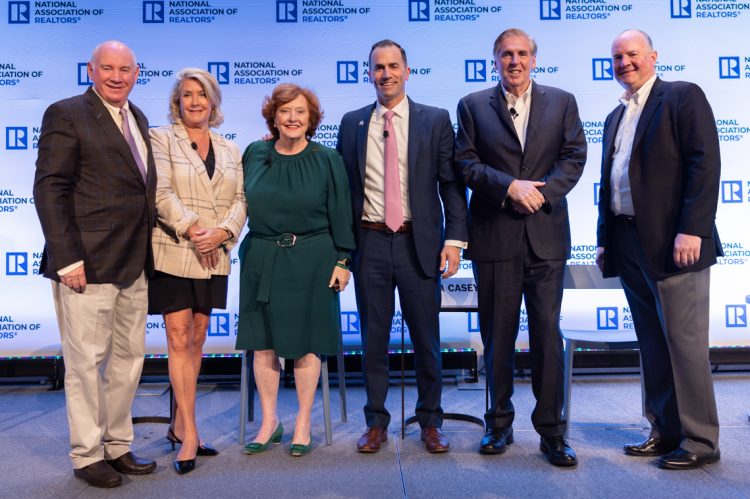After a year that relied heavily on Facetime rather than actual face time, real estate professionals are wondering what they should expect in 2022’s post-pandemic market.
As market dynamics continue to shift, leading brokers shared how they’ve been planning for the future at RISMedia’s 26th Annual Power Broker Forum, held during the REALTORS® Conference & Expo last week.
The forum was moderated by John Featherston, founder, president, and CEO of RISMedia, Inc., and York Baur, CEO of MoxiWorks.

The panel of experts included Cindy Ariosa, senior vice president, regional manager, Long & Foster Real Estate Inc.; Helen Hanna Casey, CEO, Howard Hanna Real Estate Services; Allan Dalton, senior vice president of Research and Development, Berkshire Hathaway HomeServices, HomeServices of America; and Anthony Lamacchia, broker/owner & CEO, Lamacchia Realty, Inc.
“You’ll notice if you stop by our booth that we have a t-shirt that says ‘information is currency,’ and it is,” Featherston kicked off the forum. “That phrase reigns true in our industry now more than ever. It’s the information that our consumers are looking for that you have and that you present that keeps you in the forefront of their minds and keeps them coming back to you, the skilled real estate professionals that help them through their real estate goals and objectives.”
From rethinking office space to implementing the right technology to addressing the new needs of today’s buyers and sellers, each panelist discussed their market expectations as 2022 nears.
After a year of uncanny market conditions fueled by the coronavirus pandemic and government intervention, Dalton indicated that a market correction was imminent.
However, he also noted that there was a more pressing question that needed to be addressed.
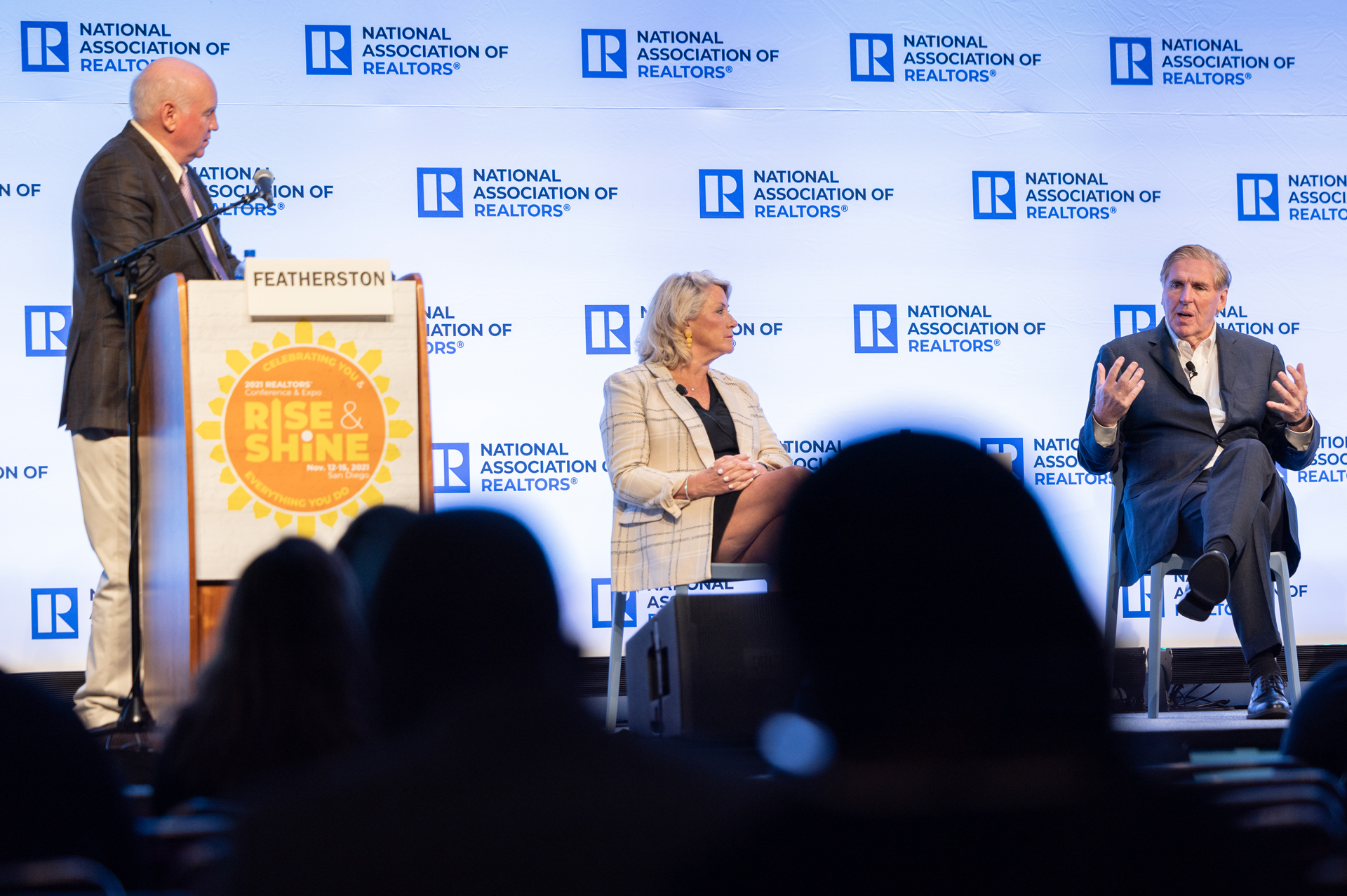
“I never seem to hear much discussion about where our industry is going to take the market,” Dalton said, noting that instead of trying to predict the future of the market, agents should focus more on how they are guiding clients through shifting tides.
In preparation for 2022, Hanna Casey suggested that agents and brokers start expanding their data tracking beyond typical “real estate numbers.”

“We have a bigger problem in this country, and it’s not pricing,” Hanna Casey said, pointing out declining numbers of marriage, birth rates and household formation specifically as potential factors in market shifts slated for years to come.
“I think we are going to be okay in the sense that we are still going to have a shortage, and as long as there is a shortage, there will be a demand, but if you look over a five-year period, I think we have to be doing something,” Hanna Casey added.
This year, a slowdown in people willing to list contributed to the strained supply and buyer frenzy that drove prices sky-high during the summer. With a dearth of inventory slated to carry over into next year, Lamacchia forecasted “bidding wars and frenzies from coast to coast” to hit the market as early as this winter.
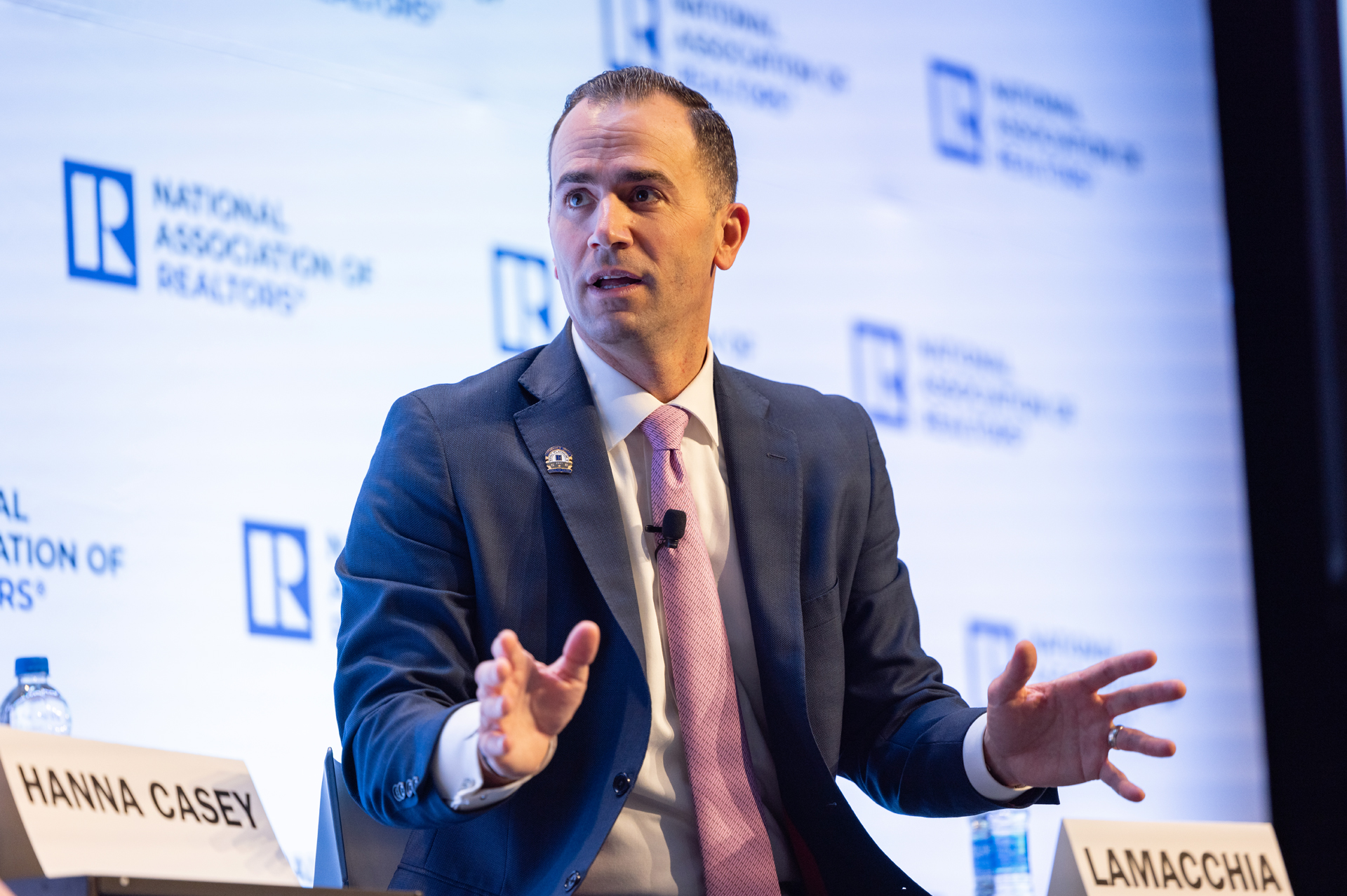
“What I am hopeful of is that now that people are vaccinated, sellers and many would-be sellers are willing to list their homes faster than this past year,” Lamacchia said.
However, he also warned agents not to view slowing sales as a detriment to the market.
“Once we get to the winter and inventory is down, you’re going to see bidding wars go wildly again, but I’m hoping that we come out of it quicker by spring,” said Lamacchia.
The increase in aging homeowners choosing to stay in place hasn’t done any favors regarding closing the supply-demand gap.
However, Ariosa was optimistic for the coming year as new development of housing and apartments in Baltimore—and nationwide—could likely incentivize older people to list their houses.
“I think they’re scared that they have nowhere to go, which is why they don’t want to get out of their house,” said Ariosa, suggesting that new units could be a boon for the market.
The conversation then focused on what each panelist has done to take advantage of the shifting market in 2022.
“Markets are great until they are not and as has been noted, none of us have a crystal ball – at least one that works – and so we’ve alluded to how you prepare for changes in the market, but I’m curious what have you already started to do over these last six months for further preparation to take advantage of things as they are but also with an eye towards how they might change beyond 2022,” said Baur.
Both Ariosa and Hanna Casey have focused on sprucing up their customer and agent experience.
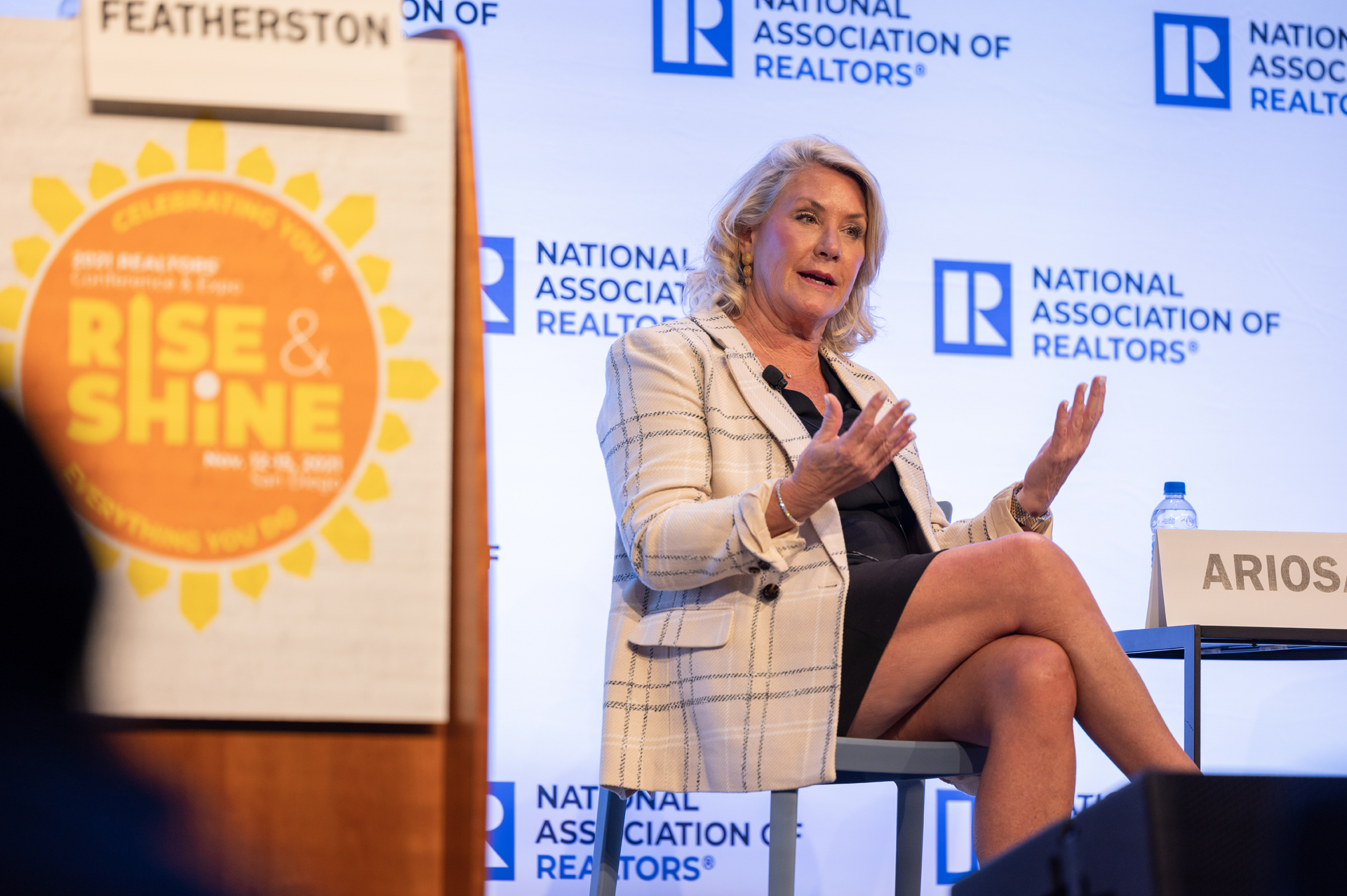
Ariosa noted that Long & Foster had expanded its client-facing services to improve its “one-stop-shop” offering along with its ancillary services. “We’re trying to create customers for life with this experience,” said Ariosa. “We’re very excited, and we think that’s going to help the experience. Everybody wants a good experience.”
Hanna Casey said that increased training at her company has been a silver lining to the pandemic, noting that the brokerage recently introduced new marketing and technology products to assist their agents along with improved training opportunities.
“Today, they are able to meet the consumer needs better than they could before, and what we found was that we, perhaps, were not doing enough training internally, and so we continue with that training,” Hanna Casey added.
Rather than focusing on the shiny new tech options inundating the industry, Hanna Casey suggested that her family’s firm has doubled down on the tech solutions they’ve been using and building around them.
Baur also weighed in on the topic, stating, “The best technology is the one you use, and the other is it’s still about relationships.”
“We have to quit trying to over-apply technology to replace humans instead of applying it to help humans be better and particularly be better around relationships,” Baur added.
Among the challenges that lie ahead in the industry—of which there are plenty—Dalton indicated that real estate professionals need to change their approach surrounding their databases and social media strategies.
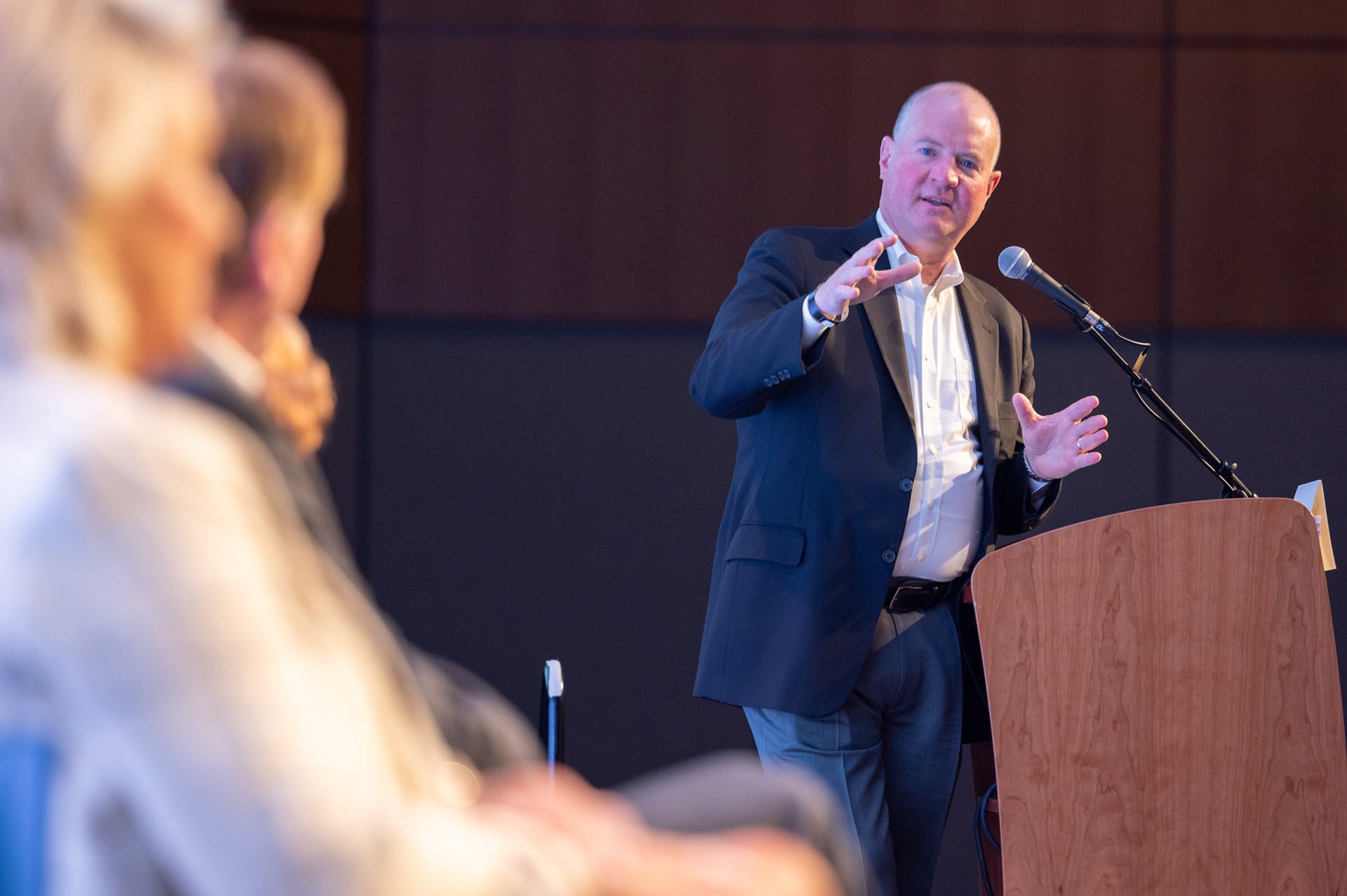
Dalton opined that there needs to be a greater focus on converting databases into client bases for agents. “Doctors, lawyers, and financial planners are focused on client bases while we’re focusing on databases,” he said.
Dalton went on to state, “the industry is settling on paying tariffs on the buying side, and the only way they are going to preempt the listing side disruption is converting their database.”
He also critiqued the overall approach to social media marketing. “A lot of agents are mimicking high school kids on TikTok, and they are not bringing value to the marketplace, and they are not engaged in social media marketing,” he said.
According to Dalton, a significant threat facing the market is the decline in how consumers value real estate agents.
“We don’t have an image problem, but when it comes to value, we do,” Dalton said, suggesting that most consumers perceive a real estate transaction as a “fee-inflated event which they have to subsidize in order to promulgate an inefficient industry.”
“The fact that a homeowner can live in a town for ten years and then when they decide to move, they call a complete stranger is a colossal indictment to the industry,” Dalton continued. “These are very serious damaging issues to perceived value when people say artificial intelligence will transcend human reasoning.”
Lamacchia echoed similar sentiments, stating, “it’s somewhat of an embarrassment of our industry that some people are going to financial advisors and lawyers for real estate advice before REALTORS®, but it’s our fault.”
He indicated that he has been training agents on how to guide apprehensive sellers who want to sell and buy, which play a role in the lull of listings during the pandemic.
“If even half the REALTORS® out there knew how to properly explain to a seller that ‘you can do this,’ you wouldn’t see inventory go as low as it does in the winter and stay that low as long,” Lamacchia added.
 Jordan Grice is RISMedia’s associate online editor. Email him your real estate news ideas to jgrice@rismedia.com.
Jordan Grice is RISMedia’s associate online editor. Email him your real estate news ideas to jgrice@rismedia.com.



